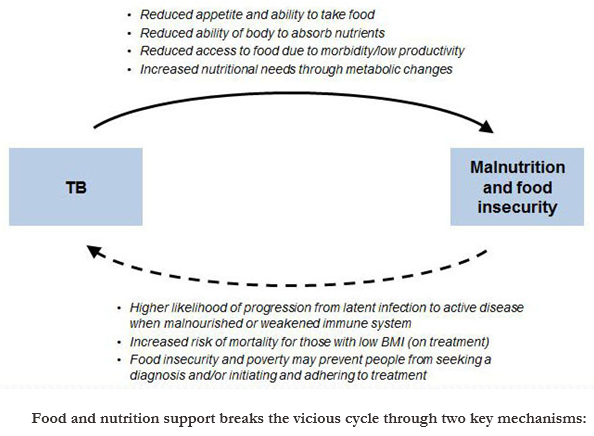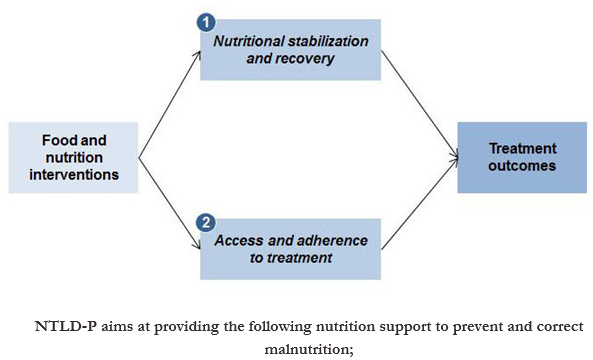Under nutrition increases the risk of infectious disease influencing both morbidity and mortality. Tuberculosis, leprosy and other Lung diseases affect individual nutrition status and treatment adherence and outcomes. Under nutrition/Malnutrition is highly prevalent among people with susceptible tuberculosis with 18% and 33% severely and moderately undernourished respectively(TIBU 2015). An estimated 10% of these patients are children below 15years. 36% of these patients are said to be co-infected (TB/HIV) some with other co-morbidities such as diabetes and Cancers making them more vulnerable to other nutrition disorders.
There is significant correlation between counties with high TB prevalence and high food insecurity. Available data shows that more men (70%)than women bear the burden of malnutrition
Food and nutrition activities support nutritional stabilization and recovery, resulting in increased immune system strength, faster sputum clearance and faster weight gain.
Food and nutrition activities also support access and adherence to treatment. By providing food support to members of the community, health centers are able to reach more individuals, leading to increased case detection, better treatment uptake and greater treatment adherence.
| Education and Counseling | • To increase knowledge on food consumption • Through Training health care workers on basic nutrition |
| Nutrient support | • Treating of severe and moderate malnutrition for both children and adult patients • Vitamin A 100,000i.u&200000I.U as per national schedule/policy • Pyridoxine 50mg/300mg |
| Food security | • Support to Drug resist ant(MDR/XDR) patients and their households. • As an adherence tool and to eliminate barriers and catastrophic effects |
| Liking to social support programs | • Integration to community and ownership and social protection schemes. • Partnerships with civil societies and other stakeholders |
Challenges:
- Wide knowledge gap one health care workers within the TB clinic set up.
- Non existing researches
- Infant feeding in the context of TB and HIV
- Inadequate funds for correcting SAM and MAM in adult patients
- Inadequate Micronutrient support.


